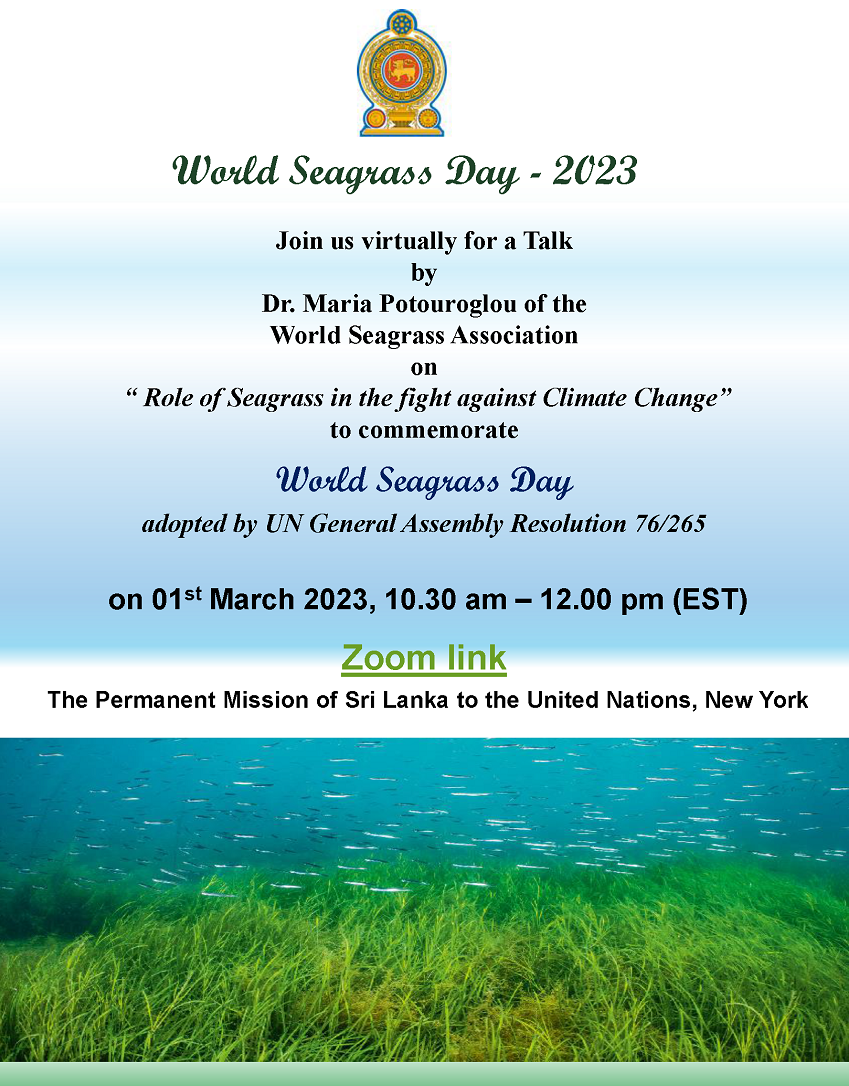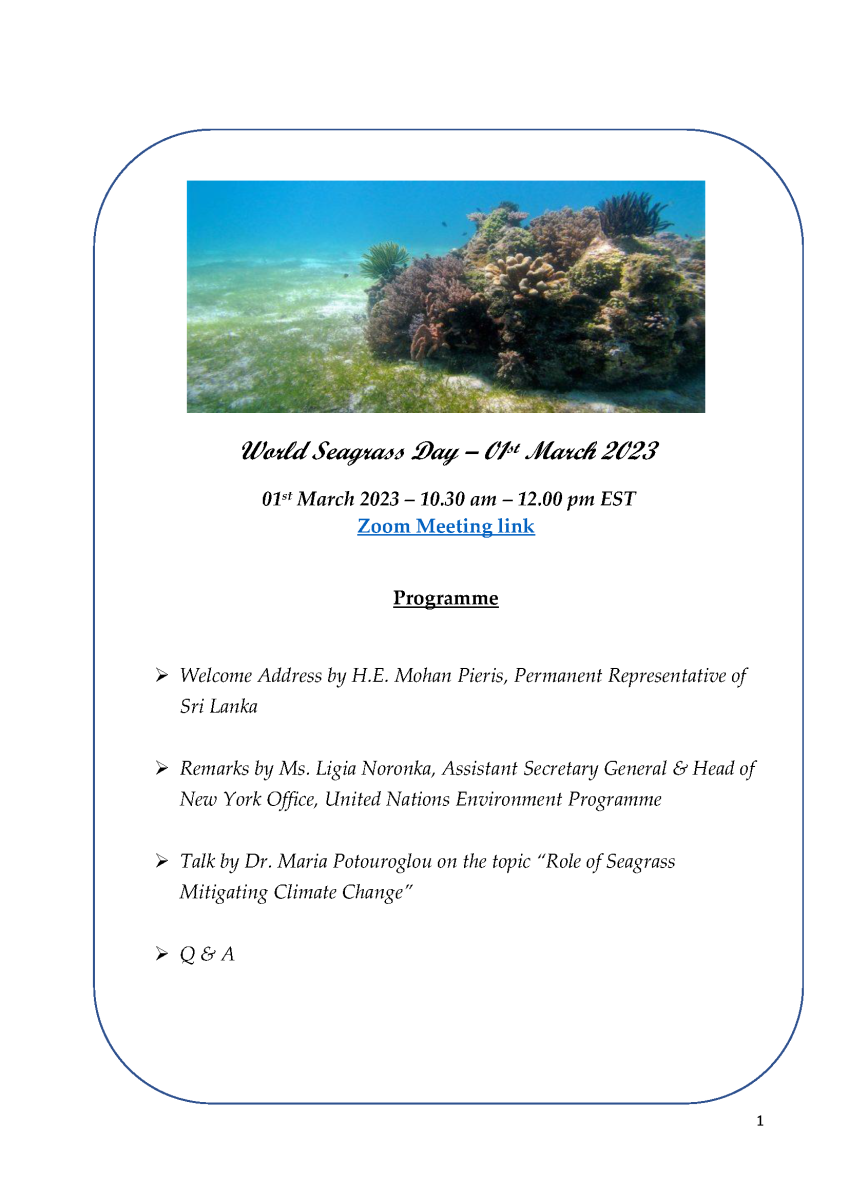


Concept Note
Commemoration of World Seagrass Day - 01st March 2023
The United Nations General Assembly on 23rd May 2022 adopted by consensus, resolution 76/265 sponsored by Sri Lanka, declaring March 01st as “World Seagrass Day”
The resolution was cosponsored by 24 countries: Bangladesh, Belarus, Bhutan, Bolivia (Plurinational state of), China, Costa Rica, Cuba, Guyana, Indonesia, Madagascar, Maldives, Nepal, Nicaragua, Nigeria, Pakistan, Panama, Papua New Guinea, Peru, Russian Federation, Senegal, Seychelles, Singapore, Timor-Leste and Uganda.
On the first anniversary of the declaration of 01st March as “World Seagrass Day”, the Permanent Mission of Sri Lanka is hosting a talk by Dr. Maria Potouroglou of the World Seagrass Association on the topic “The Role of Seagrass in Mitigating Climate Change”.
Dr. Maria Potouroglou is a Biologist by background whose work has focused on understanding the effects of climate change on marine and coastal ecosystems. Over the last 15 years, she has conducted multidisciplinary research on seagrasses in Europe, Asia, South-East Asia, the Middle East and Africa. In 2020, she led the first ever global seagrass report 'Out of the Blue: The Value of Seagrasses to the Environment and to People', initiated by the UN Environment Programme, acting as Editor-in-Chief and coordinating a collaborative effort of over 60 seagrass experts from academia, not-for-profit organizations and governmental agencies across the globe. Maria is currently a senior scientist at the Department for Environment, Food and Rural Affairs of the UK. She represents the World Seagrass Association, established in 2000, which includes scientists from over 20 countries who collectively spearhead efforts to heighten global awareness on seagrasses.
Seagrasses are one of the most valuable marine ecosystems on earth covering around 300,000 square kilometers in 159 countries and six continents. They provide a range of critical environmental, economic and social benefits. The most significant benefit being the enormous carbon sequestration potential of seagrasses, storing up to 18 percent of the world’s oceanic carbon, which is greater than that of rainforests which makes protection and restoration of seagrasses a vital tool in efforts to adapt and mitigate the adverse effects of climate change. The vital functions of seagrasses also include its role in stabilizing the sea bottom and providing ecosystem support via food and shelter for a number of marine creatures, including commercial and recreational fish species, as well as endangered and charismatic species such as turtles, dugongs and manatees. However, seagrass ecosystems are being destroyed as a result of human activity. The United Nations Environment Programme Publication ‘Out of the Blue: the value of seagrasses to the environment and to people’ states that “7 per cent of seagrass marine habitat is being lost worldwide per year, which is equivalent to a football field of seagrass lost every 30 minutes”.
The UNGA resolution has attracted global interest with many countries and communities being sensitized to the importance of this vital ecosystem. In Sri Lanka, the Ministry of Environment has given this day wide publicity among people of all walks of life, inclusive of young people, to create awareness of the contribution of seagrasses to the goals of climate preservation and sustainability to achieve the Sustainable Development Goals.


